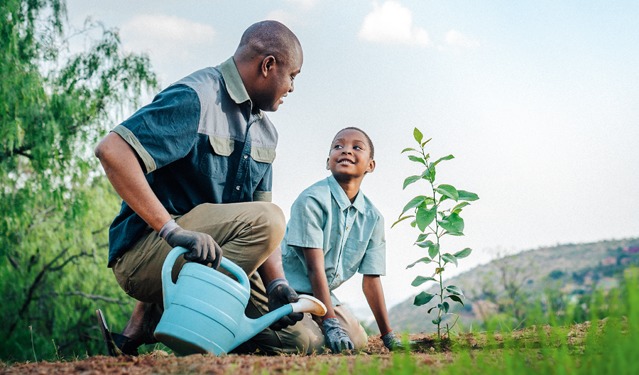Post by The Ambassador on Aug 1, 2019 15:43:06 GMT
Six Lessons Children Need to Learn
Part Four (of 6)
How to Be Responsible
Part Four (of 6)
How to Be Responsible

WHAT DOES BEING RESPONSIBLE INVOLVE?
People who are responsible are reliable. They follow through on assigned tasks and complete them on time.
Even with their limited capabilities, very young children can start learning to be responsible. “A child’s capacity to cooperate begins by fifteen months, and his desire to start willingly pitching in starts at around eighteen months,” says the book Parenting Without Borders. “In many cultures parents begin to hone their children’s helpfulness especially between the ages of five and seven, and children this young competently assist in many domestic tasks.”
WHY IS BEING RESPONSIBLE IMPORTANT?
The term “boomerang generation” describes young adults who leave home and try to live on their own but fall on hard times and return to Mom and Dad. In some cases, this happens because the youth has never been taught to manage money, run a household, or live up to daily responsibilities.
Therefore, it is best if you train your children for the responsibilities of adulthood. “You don’t want to keep them dependent upon you until they turn eighteen and then dump them out into the real world,” says the book How to Raise an Adult.
HOW TO TEACH RESPONSIBILITY
Assign chores.
BIBLE PRINCIPLE: “There is benefit in every kind of hard work.” —Proverbs 14:23.
Young children are eager to work alongside their parents. You can take advantage of this natural inclination by assigning your children chores around the home.
Some parents are reluctant to do that. They reason that their school-age children face a mountain of homework each day, so why add to their burden?
However, children who do chores are more likely to succeed at school, since chores teach them to accept assignments and complete tasks. Besides, notes the book Parenting Without Borders, “when we ignore our children’s eagerness to participate when they are younger, they internalize the idea that contributing is unimportant . . . They also begin to expect that things will be done for them.”
As that quote indicates, doing chores trains children to be contributors rather than consumers, givers rather than takers. Chores help children realize that they have a valued place in the family —and a responsibility toward it.
Help your children take responsibility for their mistakes.
BIBLE PRINCIPLE: “Listen to counsel and accept discipline, in order to become wise in your future.” —Proverbs 19:20.
When your children make mistakes —for example, if your son or daughter accidentally damages another person’s property— resist the urge to cover up what happened. Children can accept the consequences —in this case, apologizing and perhaps even making restitution.
Owning up to mistakes and failures will teach your children
- to be honest and admit their errors
- to avoid blaming others
- to avoid making excuses
- to apologize, when appropriate

A father helps his son to water a plant
TRAIN NOW
Children who are taught to be responsible will be able to manage their life more effectively as adults
Teach by Example
- Am I industrious, organized, and punctual?
- Do my children see me working around the home?
- Do I acknowledge my mistakes, even apologizing when necessary?
“If I was making dinner, the children helped from a very young age. If I was folding laundry, they folded some too. If I was dusting, they dusted. Work became fun for them. They were happy just to be with me, doing what I was doing. That’s how they learned to be responsible.” —Laura.
“Once, I had our young son call a family friend and tell her he was sorry for being rude. Over the years he’s had to apologize on numerous occasions for saying honest but unkind things, but now he has learned to apologize freely when he makes a mistake.” —Debra.
THE BENEFITS OF CONSEQUENCES
“Children make mistakes, and when they do, it’s vital that parents remember that the educational benefits of consequences are a gift,” writes educator Jessica Lahey in the Atlantic magazine. “Year after year, my ‘best’ students —the ones who are happiest and successful in their lives— are the students who were allowed to fail, held responsible for missteps, and challenged to be the best people they could be in the face of their mistakes.”
Next week: Part Five, The Value of Adult Guidance

 , think of it as a messenger. All members may send instant messages which will be seen by all other members. ~ Admin
, think of it as a messenger. All members may send instant messages which will be seen by all other members. ~ Admin